- The U.S. government is supporting a Canadian company to acquire a controversial nickel mine in Guatemala, according to a memo obtained by Newsweek.
- It comes amid increasingly intense competition with China over strategic resources such as nickel, which is key to technologies including electric cars.
- The mine is owned by a Switzerland-based investment group, whose Guatemalan assets were put under U.S. sanctions amid allegations of Russian "influence peddling."
- "We'd be foolish not to capitalize on an opportunity caused by sanctions against Russia," a congressional source said.
Guatemala may have become the latest battleground in America's bid to gain a foothold in the race for strategic metals dominated by China amid a remarkable proposed acquisition of a notorious nickel mine worth $1 billion, Newsweek can reveal.
A memo obtained by Newsweek indicates that, with the support of the U.S. government, the Guatemalan assets of the Switzerland-based Solway Investment Group—which were put under U.S. sanctions amid allegations of Russian influence peddling and ecological devastation—are in line for acquisition by a Canadian company for a "substantial discount."
The Montreal-headquartered Central America Nickel (CAN) corporation reportedly plans to acquire the Fenix Nickel Project, a vast complex located close to the eastern Guatemalan town of El Estor that is valued at up to $1 billion and has been in operation since 1960 despite fierce resistance from local indigenous communities.
The move comes as the U.S. faces intense competition over rare earth metals and other strategic resources that will shape this century's technological leaps, both in the commercial and military spheres. China, in particular, already dominates the rare earth market, accounting for some 63 percent of global rare earth mining operations, 85 percent of rare earth processing, and 92 percent of rare earth magnet production.
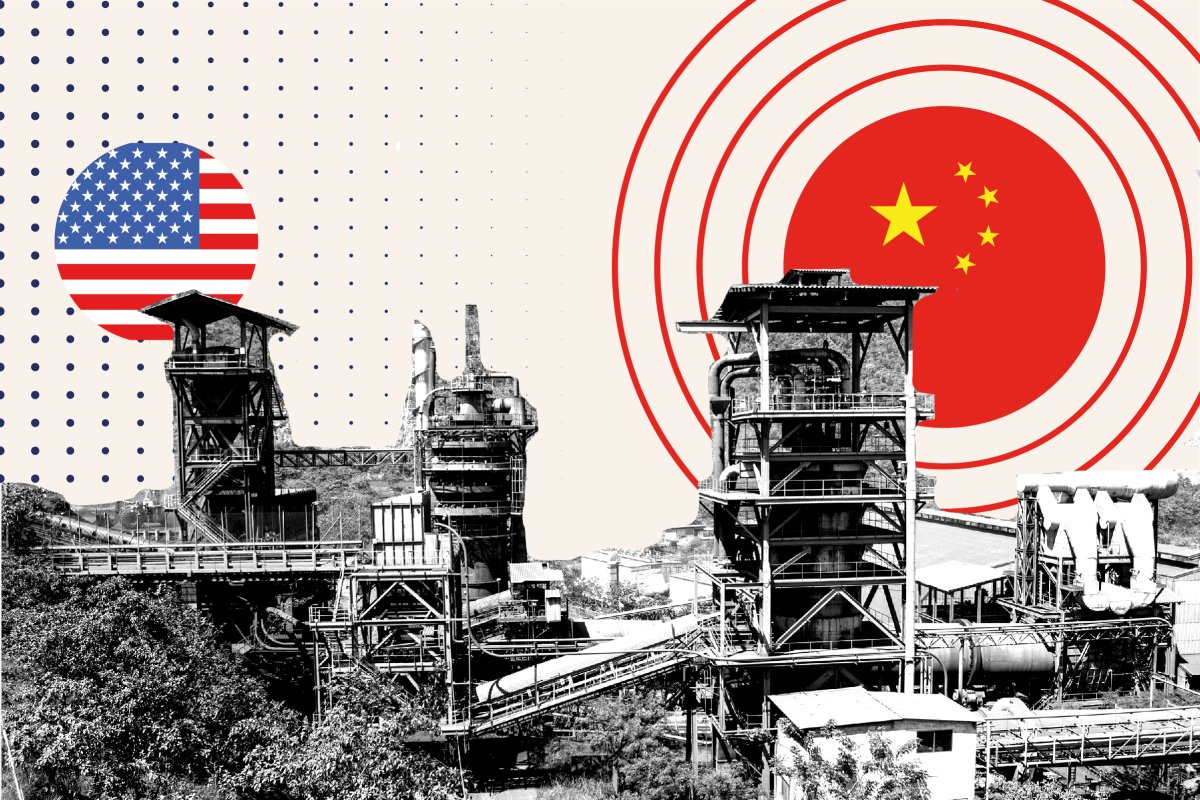
Some 35 of the precious minerals and metals required for American production and manufacturing are currently controlled by Beijing, according to one industry report. Among them are the materials needed to produce smartphones, electric vehicles, and a wide range of advanced weapon systems.
The U.S. is playing catch-up, an effort complicated by the disruption of the COVID-19 pandemic and now the war in Ukraine. But in the burgeoning nickel mining sector, Russia's war on Ukraine may have handed Washington a tantalizing opportunity.
The memo obtained by Newsweek suggests Solway's decade-long involvement at Fenix might be drawing to an ignominious end. A Solway spokesperson told Newsweek the company is aware of the memo, though was "unable to confirm its authenticity as CAN has never approached Solway directly to discuss their offer. It is a rather uncommon business practice for a company to make buyout offers to the U.S. government instead of approaching the owning party first."
"Solway has no intention of selling its assets in Guatemala," the spokesperson said. "On the contrary, we are doing everything possible to save the business [...] This includes continuous communication with the U.S. officials through a group of U.S. legal firms."
A legal representative for CAN, however, acknowledged in a statement to Newsweek that the firm has applied for Treasury consent to acquire the sanctioned assets, via an "exemption request in the month of January 2023 for the Solway-owned assets and permits in Guatemala, through its duly incorporated American subsidiary."
To date, "CAN has not received an answer from [the Treasury's Office of Foreign Assets Control] regarding its exemption request," they said.
A congressional source, who did not wish to be named as they were not authorized to speak publicly, told Newsweek they could not confirm that a deal was in motion, but added: "Nickel is obviously very strategic, and we'd be foolish not to capitalize on an opportunity caused by sanctions against Russia."
A Discount Acquisition
The memo obtained by Newsweek describes Fenix as a "world-class" facility, with mining rights to some 40 million tons of nickel ore reserves with 1.86 percent nickel, plus another 77 million tons of additional resources within its broader license area. In 2022, American nickel mines collectively processed around 18,000 tons of nickel ore. Solway says Fenix produces more than 1,000 tons of nickel each month.
Solway told Newsweek its operations in Guatemala provide "nearly 6,000 direct and indirect jobs to the local population," now imperiled by the American sanctions.
The memo says that CAN is working closely with a U.S. diplomat at the American Embassy in Guatemala, who has been speaking with the Department of Defense on the company's behalf, and who has connected the company with the U.S. International Development Finance Corporation (DFC) to seek additional funding.
According to the memo, the DFC has already agreed to provide political risk insurance for a nickel project in Guatemala, plus $300 million in financing for additional processing facilities. The nickel sulphate produced there is intended for sale "to American battery and [electric vehicles] manufacturers such as General Motors."
The DFC initially declined to comment on the memo. Spokesperson Pooja Jhunjhunwala later told Newsweek that the assertions made in the memo were incorrect, noting in a statement: "DFC is not providing political risk insurance or other financing to a nickel project or related processing facilities in Guatemala."
The diplomat, the memo says, recently confirmed they "will be supporting the company in its efforts to acquire the Solway nickel assets in Guatemala, following the recent sanctions imposed on the Russian company."
The plan, as outlined in the memo, is to transfer CAN's nickel assets in Guatemala to a U.S.-incorporated firm called America Rare Earth Sources Inc. (ARES), which will be wholly owned by CAN. CAN will acquire 100 percent of ARES, which will in turn acquire 100 percent of two Guatemala companies, Rio Nickel Inc. and Nichromet Guatemala Inc.
CAN is hoping to acquire Solway assets at a "significant discount to the current asset value, and will have the support of the U.S. Embassy throughout the process, and the DFC to support further development and investment in the company's nickel projects," the memo reads.
CAN, the firm's legal representative told Newsweek, "has approached governments to discuss the supply chain requirements as well as to create potential joint ventures for the supply of critical minerals that are currently being supplied by China."
The representative said CAN met with the Canadian and American embassies to discuss the firm's Rio Nickel and Nichromet Guatemala subsidiaries during a visit to the country in 2022.
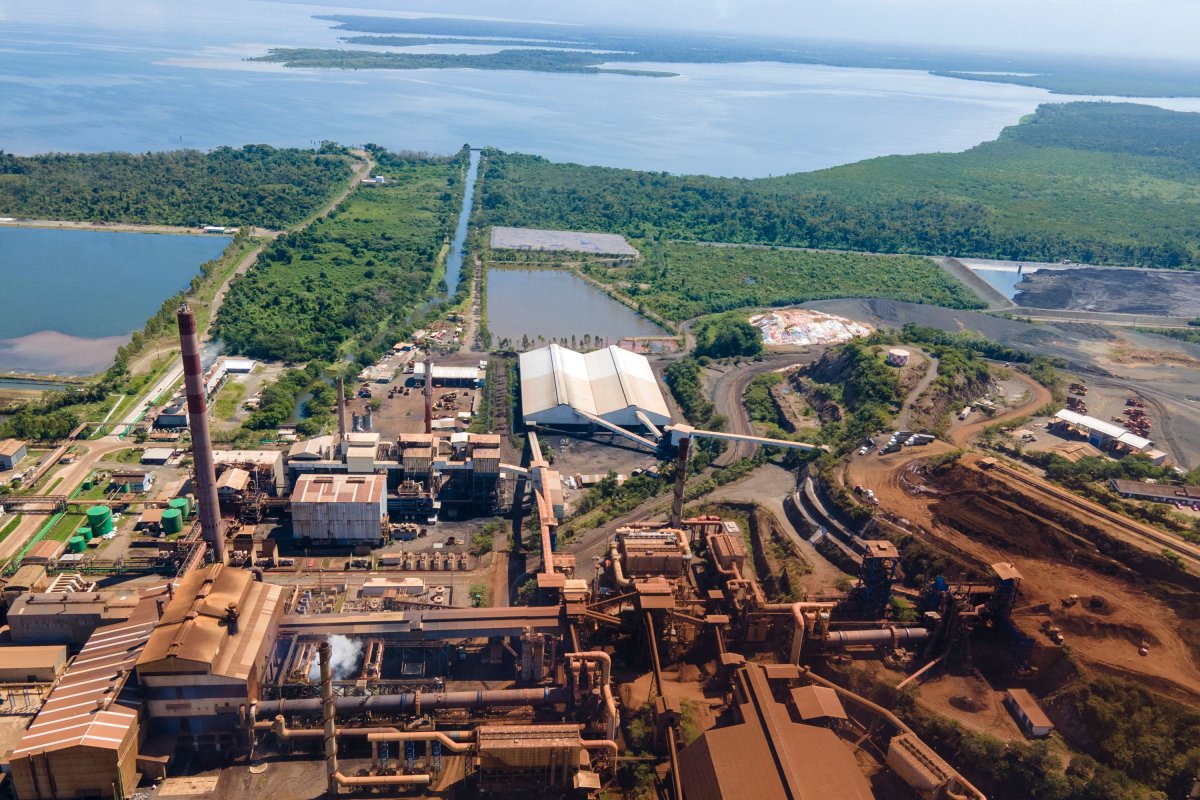
"It is CAN's understanding that the role of the U.S. Embassy in Guatemala is to facilitate the economic activities that are strategic to the green transition in the United States." The firm, the representative said, worked on the assumption that the diplomat's "mandate was to facilitate discussions around the business environment in Guatemala with regard to supplying critical minerals to the United States."
The representative said that the U.S. diplomat in question "introduced CAN to the U.S. International Development Finance Corporation whose mandate is to finance projects in jurisdictions such as Guatemala and provide political risk insurance."
The representative added that CAN "never requested anything" from the diplomat "or any other individual embassy or government staff member. Further, CAN never received any assurances or promises" from said diplomat "or from any other individual embassy or government staff member."
CAN, the representative said, learned of the sanctions against Solway assets through media reports several months after having met with U.S. and Canadian diplomatic officials in Guatemala. It was then that the company applied for Treasury consent to acquire them.
'Russian Influence Peddling'
In November, the Treasury imposed sanctions on Russian national Dmitry Kudryakov, who it said was "the leader of Solway's mining operations in Guatemala."
Kudryakov, the designation said, was directing the work of the Compania Guatemalteca de Niquel (CGN), Compania Procesadora de Niquel (ProNiCo), and Mayaniquel, which the Treasury said, "function as subsidiaries of the Solway Investment group, a Russian enterprise that has exploited Guatemalan mines since 2011."
Kudryakov, along with Belarusian national Iryna Litviniuk, "allegedly led multiple bribery schemes over several years involving politicians, judges, and government officials," the designation read. "Litviniuk conducted corrupt acts in furtherance of Russian influence peddling schemes by unlawfully giving cash payments to public officials in exchange for support for Russian mining interests."
The State Department said the measures "target an egregious Russian corruption network in order to disrupt its exploitative practices within the Guatemalan mining industry."
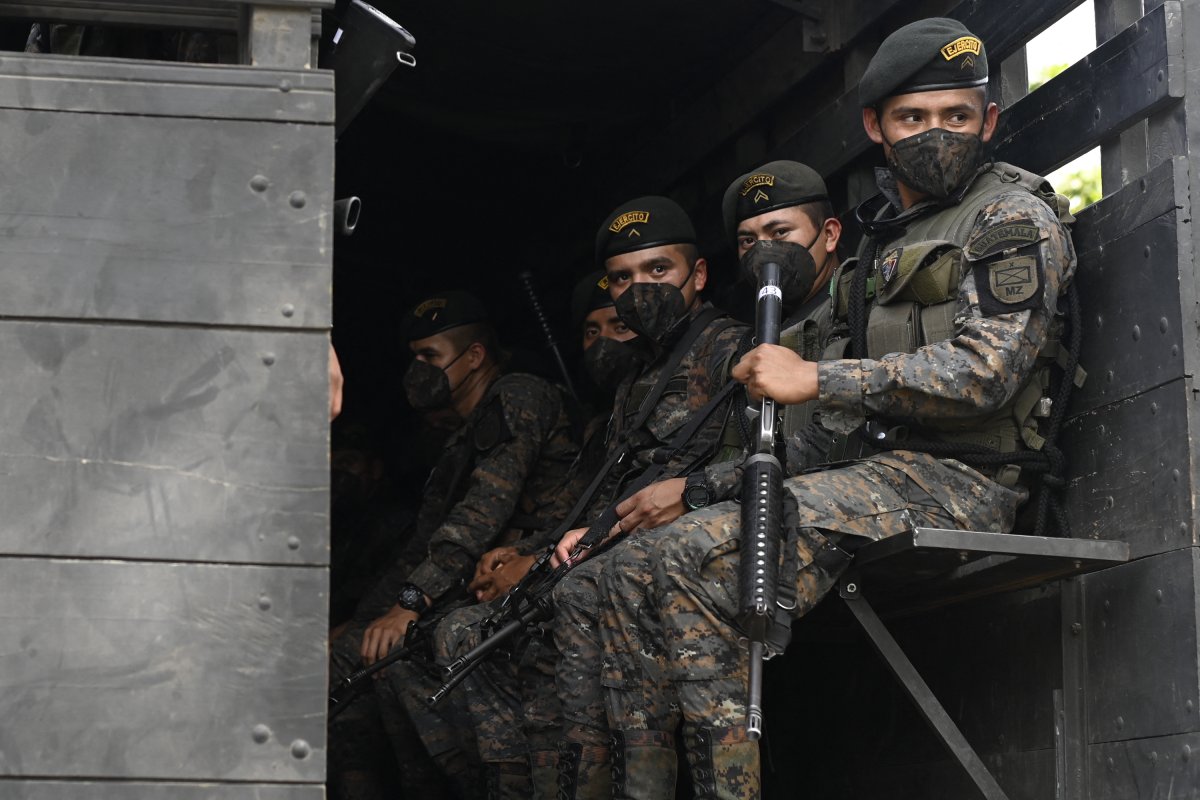
A Solway spokesperson told Newsweek: "We categorically deny any direct or indirect association with the Russian government, Russian leadership or Russian money and therefore could not have acted in their interests. Moreover, we are not affiliated with or connected to the company Mayaniquel. We have previously publicly condemned the Russian invasion and support the Ukranian people with humanitarian resources."
In response to the sanctions, Solway said last year that both Kudryakov and Litviniuk "had held management positions in the subsidiaries for many years; both have been immediately suspended from their positions pending the results of the investigation by outside legal counsel."
Newsweek has contacted the State Department, U.S. Embassy in Guatemala, and the Treasury Department multiple times by phone and email to request comment on the supposed acquisition plans detailed in the memo, and the involvement of U.S. government officials.
A former senior U.S. diplomat who worked on Guatemala issues, who spoke with Newsweek on the condition anonymity given the sensitivity of the topic, said: "I think the Russian angle in this case made this particular company stand out even more."
"The allegations against them in terms of the treatment of indigenous peoples, the environment, and corruption were already pretty egregious, but this made it stand out."
As to the proposed change in ownership, the former diplomat said: "I think they would find that agreeable, and I think the U.S. government would think it better than, say, a Chinese-linked company coming in, or another European company with allegedly unclear financial origins."
"Whoever ends up with these assets will also inherit potential legal challenges to the actual mining operation that will be adjudicated by a non-independent Guatemalan judicial system, as well as negative views towards the mine by local indigenous groups, and the possibility of additional U.S. government investigations."
Nickel Wars
The U.S. Geological Survey added nickel to its list of critical minerals in 2022. Nickel is used in the production of key products including stainless steel, superalloys, and rechargeable batteries. The growth of the electric vehicle industry—projected to be worth some $858 billion worldwide by 2027—has been a particular driver of growing focus around nickel.
Nickel was added to the list due to the "the single point of failure" criteria, given the U.S. only has one refinery producing crystalline nickel sulfate.
Marking the release of the 2022 strategic minerals list, the White House released a memo detailing its intention to "expand domestic critical minerals supply chain, breaking dependence on China and boosting sustainable practices." The memo included details on administration efforts to expand nickel production and sales, working with companies including Tesla.
"The demand for nickel is going to be exponentially increasing for the next 10 years," Antonio Nieto—a mining and minerals expert now working as the director of the FLSmidth technology and research center in Salt Lake City, Utah—told Newsweek.
The growing electric vehicle and renewable energy industries necessitate a reliable supply of nickel for the U.S. and its allies, Nieto said. "If we don't have the supplies secured over the next few years for nickel, then we're going to really be struggling, at least in the controllable area of the U.S. and the controllable region," he said.
Global nickel production is led by Indonesia (producing around 725,000 tons per year), the Philippines (381,000 tons per year), and Russia (270,000 tons per year). The U.S. is in tenth place, producing around 14,000 tons each year. China is in seventh, producing some 110,000 tons of nickel per year; nearly eight times the U.S. output.
U.S. allies Canada, Australia, and France also control significant nickel deposits and are also in the top 10 global producers, ahead of Brazil and Cuba.
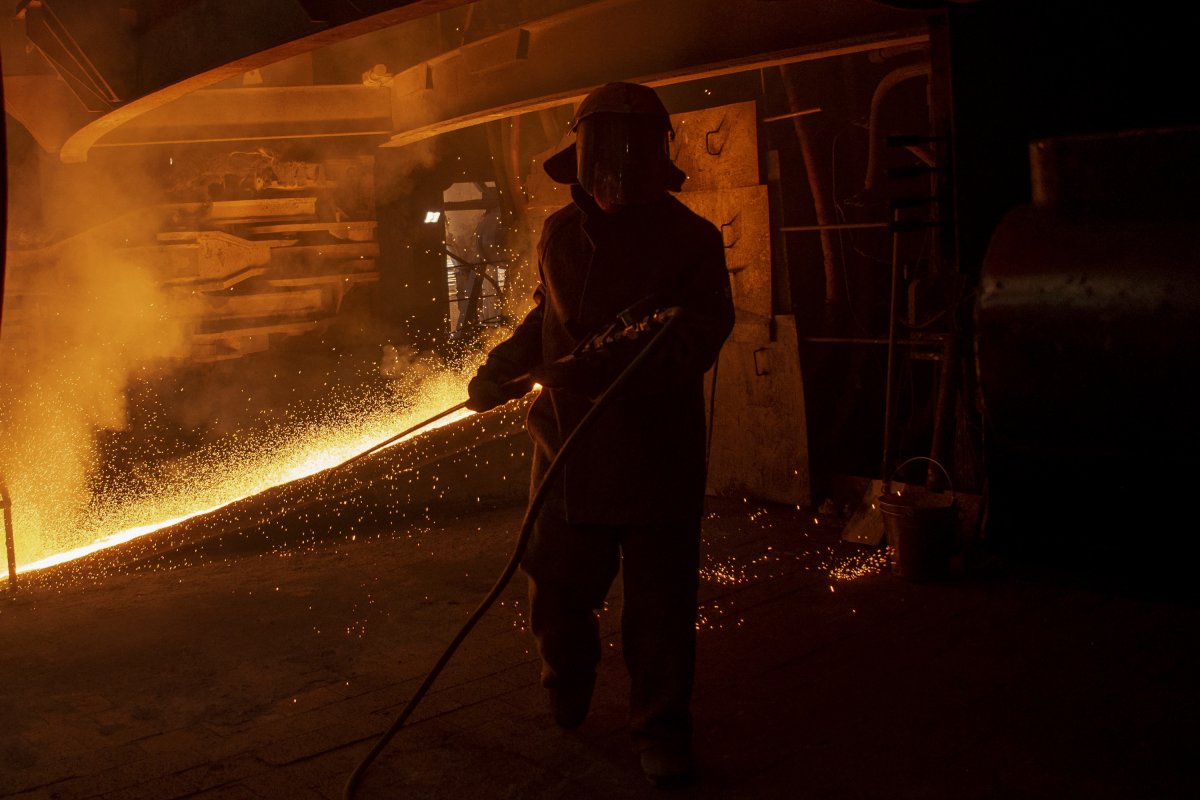
Russia has significant reserves of nickel, though access to these will be limited for Western governments and companies for as long as frosty East-West relations continue. Nickel is one of many areas in which Beijing and Moscow are drawing closer. Bloomberg reported in March that Russia's largest mining firm is now selling its nickel to China in yuan.
Canada is among the countries working to shut Beijing out of its strategic industries. Last year, the government forced three Chinese companies to divest their investments in Canadian lithium mines, with Industry Minister François-Philippe Champagne saying that Ottawa would "act decisively when investments threaten our national security and our critical minerals supply chains."
Elsewhere, Chinese companies are competing to exploit the world's largest nickel deposits. Chinese mining companies have spent more than $14 billion on the Indonesian islands of Sulawesi and Halmahera over the past decade, seeking access to the reserves there. Other giants putting down roots in Indonesia include Hyundai, LG and Foxconn.
U.S. firms are even working with the Chinese to do the same. Ford recently announced plans to partner with the Indonesian Vale and Chinese Huayou firms on $4.5 billion nickel plant in Pomalaa in southeast Sulawesi.
Jakarta has been trying to increase its share of the profits. In January 2020, Indonesia banned exports of unprocessed nickel to attract more foreign investment into in-country processing facilities.
The nickel contest is also heating up in the Philippines, long a battleground for clashing U.S. and Chinese interests. Chinese firms are flooding into the country seeking access to its natural resources.
There is already robust trade between Manila and Beijing. The Philippines was the source of 58 percent of all Chinese nickel ore imports in 2021. And during the recent visit of new Philippine President Ferdinand R. Marcos Jr. to China, business leaders committed more than $7 billion in investment pledges centered around nickel and electronics.
The U.S. is battling to retain and expand its Philippine access. Vice President Kamala Harris last year launched a series of initiatives to strengthen the Manila-Washington alliance, among them the development of a new nickel and cobalt processing facility.
With China increasingly asserting itself in Asia—and further afield in Europe, Africa, and Latin America—the acquisition of the Fenix operation in Guatemala by a North American firm could be considered a much-needed win for the U.S.
Washington, D.C still has the edge over China in Latin America. "There has not been much Chinese flirtation with Guatemala," the former senior U.S. diplomat said. As to the wider Central American region, they added: "It's an area in which they wish to increase their influence, looking more to the medium and the long term. I don't think they're looking at anything dramatic in the short term."
"They now have some opportunities in Honduras, which just recognized the People's Republic of China again. But again, I don't think they're going to rush into Honduras. When it comes to Central America, they're accumulating spaces and pieces and will bide their time."
'Friend-Shoring'
The furor around Solway may have opened a door for the U.S. to wrest a strategic asset away from Russian—and by extension Chinese—influence.
A second former U.S. diplomat with knowledge of the situation—who also requested anonymity to discuss the issue candidly—said the reported acquisition plan fits with Washington's new focus on strategic materials.
"The administration has taken a brand-new approach, ever since COVID and all the supply chain disruptions, in that the U.S. government is going to take a more active role in trying to develop supply chains," the former diplomat said. "We call it 'friend-shoring.' So, in that context, I can see why they would go after it. Because nickel is a strategic mineral [...] I can see why the U.S. would want to be helpful."
"I'm not saying that this particular case is related to that initiative, but it fits well within the broad new approach that the U.S. government is taking with respect to strategic minerals, competition, and the search for friendly and reliable supply sources for strategic materials."
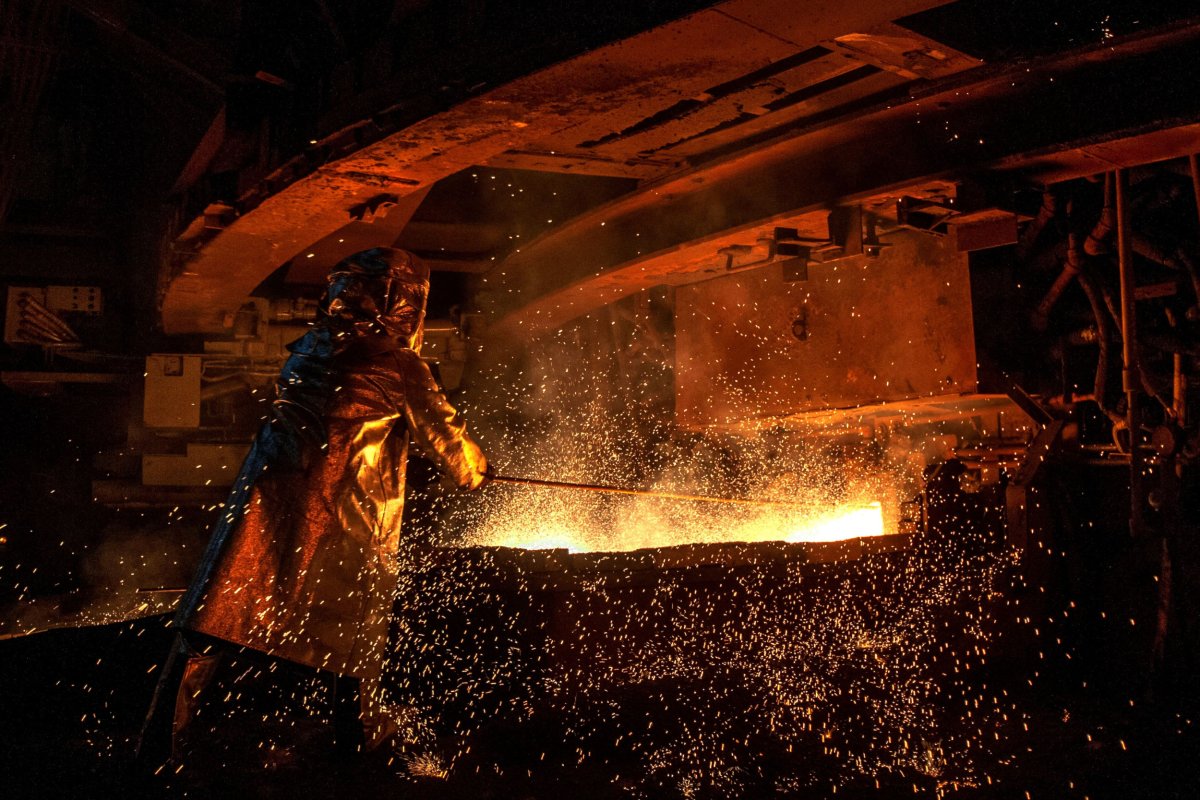
Asked if it was normal for the U.S. government to have such involvement in a planned acquisition, the former diplomat replied: "It's not normal from the perspective of the Treasury's involvement with respect to sanctions. That's a very delicate matter and that's a very specialized matter [...] What the embassy may be doing is simply opening doors."
The diplomat added that any company standing to benefit from acquisition of sanctioned assets would have to go through various stages of vetting before being cleared as suitable. As in other cases involving sanctioned assets, the Treasury would determine whether the transaction would be issued a license.
The reported cheap price of the planned acquisition, the former diplomat said, could be explained by the difficulty Solway finds itself in. "It's a fire sale," they said. "They probably want to get whatever money they can and walk away."
As to any suggestion that sanctions measures were introduced with an eventual acquisition in mind, the diplomat expressed skepticism. "Conspiracy theories abound in Guatemala, and I have already heard a conspiracy theory that this was an attempt by the U.S. to create the conditions so that that a U.S. firm could acquire it," they said.
"Of course, that's insane. But people actually believe that."
4/11/23 3:45 a.m.: This article has been updated to include comment from the DFC.
Uncommon Knowledge
Newsweek is committed to challenging conventional wisdom and finding connections in the search for common ground.
Newsweek is committed to challenging conventional wisdom and finding connections in the search for common ground.
About the writer
David Brennan is Newsweek's Diplomatic Correspondent covering world politics and conflicts from London with a focus on NATO, the European ... Read more
To read how Newsweek uses AI as a newsroom tool, Click here.








